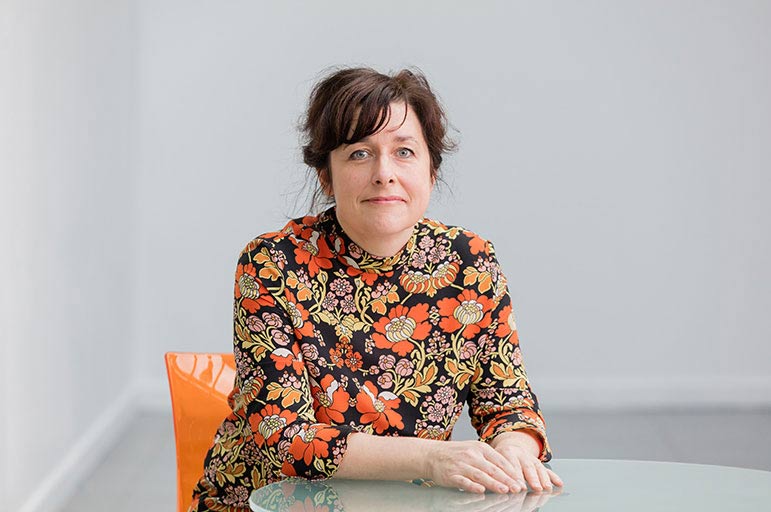Vanessa Brown, Nottingham Trent University – Why Fashion Models Don’t Smile
 Why don’t fashion models smile?
Why don’t fashion models smile?
Vanessa Brown, senior lecturer in the school of art & design at Nottingham Trent University, explores this question.
Vanessa’s research is focused around visual culture and the relationships between identity and the potential meanings of everyday designed objects within modernity. For example, femininity, feminism and the image of the ideal 1950s housewife (published in Polkey and O’Donnell 2000), sunglasses and cool (the subject of her PhD, completed 2010), and most recently kitsch, cool and the tastes of a British subcultural elite (awaiting online publication). She is currently working on publications from the PhD.
Her work is characterised by a multi-disciplinarity that is increasingly necessary to untangle the web of historical and contemporary associations, ideologies and loosely held beliefs which do so much to constitute the potential meanings of designed objects, which in turn can help to answer the big questions for fashion culture – why do so many people want to be ‘cool’? How do taste and power relate to one another? More general areas of knowledge are modernity, postmodernity; twentieth century design history (special additional interest in pattern/illustration); fashion theory, popular culture, celebrity culture.
Vanessa is also interested in innovation in teaching and learning, and has developed a range of innovative strategies to encourage diverse design students to aim high in their research and writing, including: the visual dissertation, options to produce publications/exhibition derived from dissertation study, an undergraduate symposium showcasing student progression and staff research; a competition for placement with Hemingway Design, writing workshops based on life-drawing techniques; an online seminar project; as well as innovative ways to exhibit ‘written’ work.
Ideas for future work: to draw on new developments in material cultural studies and fashion theory to consolidate methods for ‘reading’ texture and pattern; and to apply the findings of the PhD about the significance of ‘cool’ in modern life to more sustainable design and consumption.
Cool theory (and knowledge of visual culture) could have many potential applications to areas like health promotion, education and sustainable consumption.
Why Fashion Models Don’t Smile
Since the late 1900s, when Lady Duff Gordon (aka Lucile of London) gave her working class models a ‘mysterious’ yet aristocratic expression, catwalks have largely been smile-free. The nonchalant look has stuck.
Paradoxically the fashion model’s still expression actually speaks volumes. Centuries of royal portraiture influenced early fashion images, crystallised by photographers like Horst P.Horst. The haughty look became a sign, not of breeding, but of self-invention and the status that the right clothes could create. Whether disdainful, oblivious or insolent, the non-smiling face says: “I am better than you” by refusing to offer the open expression that we normally use with superiors and equals.
Looking emotionally controlled also suggests being above ordinary concerns, and – in modern times – an ability to be “unshakeable”. This is even more impressive in what Erving Goffman called “fateful” situations – where you or your fortunes face especially great risk. Goffman said the ability to move smoothly and exert fine control over hands and facial muscles in these situations commands particular respect.
Fashion may not be life or death, but if a collection bombs, the designer loses both face and fortune. In something outlandish, a smiling model could look embarrassed by the designer’s choices; uncertain of the trends or desperate for approval. Models adopt the dandy’s ‘glacial expression’ to show ‘unconquerable self-assurance’ – this persuades onlookers that the clothes are right, and it becomes a commodity along with the clothes: ‘Cool’, the appearance of self-possession in a world of chaos and perpetual change.



Models do not smile because designers and sellers do not want attention deflected from what they are wearing.